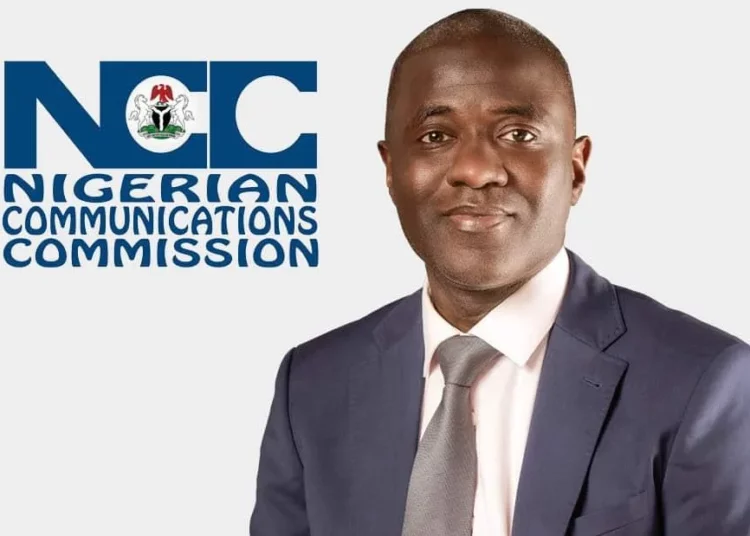For years, the federal government of Nigeria has rolled out policies that could help the country successfully diversify its earnings away from overdependence on oil.
One of such policies is the Nigerian National Broadband Plan (NNBP) 2020-2025, which offers huge economic growth opportunities, especially for Nigeria‘s young teeming population. According to stakeholders, for every 10 percent increase in broadband penetration, results in about 2.6 percent to 3.8 percent growth in GDP.
To fast-track broadband penetration in the country, the Nigerian Communication Commission (NCC) under the leadership of the former executive vice chairman of the Commission, Prof. Umar Garba Danbatta, embarked on the Infrastructure Company (InfraCo) project.
According to Danbatta, InfraCos will be responsible for providing a national broadband network to service providers; they were to fast-track the rollout of infrastructure across the companies.
Broadband targets
The minister of Communications, Innovation & Digital Economy, Dr. Bosun Tijani, planned to boost Nigeria‘s broadband penetration rate to 70 percent by the end of 2025; provide coverage for at least 80 percent of the population, especially the underserved and unserved populations by the end of 2027 and deliver data download speed of 25Mbps in urban areas by the end of 2025.
The journey so far
To achieve these targets, seven companies were granted licenses to offer last-mile services in the six geopolitical zones, with Lagos standing out due to its unique position as the nation‘s commercial center.
The initial licenses to cover Lagos and the North Central zone, including the Federal Capital Territory (FCT), were given to MainOne‘s subsidiary Infraco Nigeria Limited and IHS in 2016.
However, a few years later, IHS returned the license after realizing that the model might not function given the infrastructure deployment constraints. The license returned by IHS was awarded to Broadbased Communications Ltd. in 2021.
Seven years later, it is sad to note that all seven companies granted licenses to cover access gaps, especially in underserved and unserved areas of the country, and to provide a wholesale layer to transmission services on a nondiscriminatory open access price regulated basis, are yet to implement infrastructure in accordance with these conditions.
As of August 2023, NCC’s data showed that broadband penetration in the country stood at 45.57 percent, even as the present executive vice chairman, NCC, Dr. Aminu Maida averred that, “With a target of 70 percent broadband penetration by 2025 as set in the Nigeria National Broadband Policy (NNBP 2020-2025), the Commission now has a very short time to deliver on the target.”
InfraCo re-examined
Meanwhile, all hope is not lost, even as Maida has assured that he would review the InfraCo licensing project which got stalled under the past regime. According to him, the InfraCo project will be re-examined as part of efforts to deepen broadband penetration in the country.
“A lot has been done with the InfraCo project. We just have to reimagine, look at it again, and see whether that is the right approach and reimagine how we approach it. We need to start getting into the States, and perhaps we might need to sit down and see how we can do that differently. Again, on the broadband issue, we need to increase the investment.”
Maida asserted that the Commission‘s priorities for the next four years and beyond under the current administration are strictly in line with the vision for the digital economy as outlined in the Strategic Plan of Dr. Tijani. The Strategic Blueprint, which was unveiled in October 2023, has five pillars and gives priority to the digital empowerment of three million Nigerian youths and the deployment of broadband infrastructure, he further stated.
The new EVC revealed other pillars of the Ministerial strategic plan, which are Knowledge; Policy; Innovation/Entrepreneurship; Capital and Trade; and Network. The „Infrastructure“ component of the Strategic Blueprint is one of the five pillars and focuses on broadband accessibility, availability, and affordability, he added.
In line with the NNBP 2020–2025, Maida proposed that the NCC, led by President Bola Tinubu, GCFR, would support the Ministry‘s goal of increasing Nigeria‘s broadband penetration rate to 70 percent by the end of 2025 by installing 95,000 kilometers of fiber optic cables throughout the nation, adding that the Strategic Plan is intended to drive a significant portion of the overall implementation of the President’s Renewed Hope Agenda.
“In the same vein, and in line with the vision of the Ministry, we are targeting the provision of coverage of, at least, 80 percent of the country’s population, especially the underserved and unserved populations by the end of 2027; we also intend to secure between 300-500 percent increase in broadband investment by the end of 2027; while we work to reduce the gap of unconnected Nigerians in rural areas from 61 percent to less than 20 percent by 2027,” he stated.
Other key targets in the Strategic Plan of the Ministry, which has adopted a clear-cut strategy to transform Nigeria’s digital economy sector and which the NCC is committed to, include the plan to deliver data download speed of 25Mbps in urban areas and 10Mbps in rural areas by the end of 2025; achieve a 50 percent improvement in the quality of service (QoS) by 2024; 22 percent increase in net GDP contribution by the digital economy by 2027 as well as an increase in investment into Nigeria’s telecommunications sector by 15 percent year-on-year, the EVC assured.
“The Ministerial blueprint also targets 70 percent digital literacy by 2027; a capital increase raised by Nigerian tech startups by 50 percent year-on-year from $1 billion/year in 2022 to $5 billion/year in 2027; and achieving 25 percent domiciliation of local technology startups by 2027. Other expectations are to accomplish for Nigeria, 60 percent government data digitization by the end of 2026; the creation of 50,000 Artificial Intelligence (AI) industry jobs by 2026 while also ensuring the accomplishment of 22 percent net GDP contribution by 2027, among others,” he said.
He, however, reiterated the commitment of the Commission to supporting the strategic blueprint of the supervising Ministry and the Renewed Hope Agenda of the current administration by stimulating stronger broadband infrastructure that extends beyond connecting people but also focuses on economic empowerment and creating opportunities for inclusion.
“The current administration expects that with improved access to quality and affordable broadband, and upgraded critical services, we would be able to work collaboratively to catalyze a digital transformation that impacts our entire population.
To achieve this potential, the NCC will continue to ensure diligent implementation of our broadband strategy to ensure that everybody is carried along. As a Commission, we will also ensure effective management of our spectrum resources as pathways for the growth of new and emerging technologies, improvement of businesses and seamless access to government services,” he stated.
In light of the estimated capital requirements, which range from $3.5 to $5 billion to achieve effective execution over a five-year period from 2020 to 2025, the plan remains ambitious. It can only be realized through aligning and harmonizing government and private sector activities regarding spending and incentives in order to achieve the best possible outcomes.
The NCC boss, therefore, called on all necessary stakeholders to join hands with the Commission as it discharges its regulatory mandate towards building robust and resilient broadband infrastructure that supports the potential of the growing data revolution to drive the sector collective prosperity in Nigeria.





